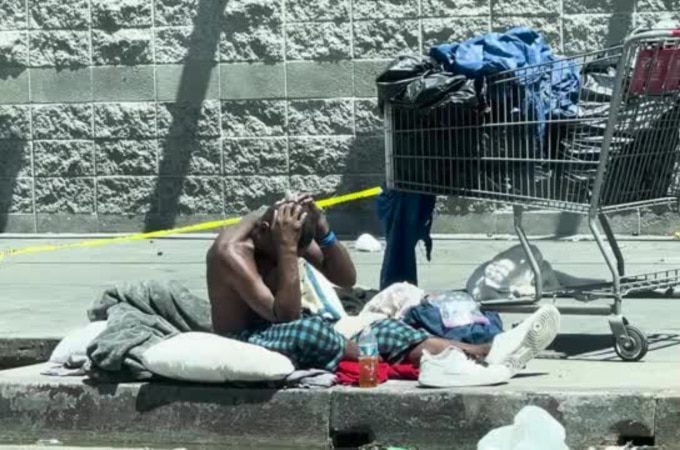BTN News: In Los Angeles, a city often associated with wealth and glamour, a harsh reality persists: nearly half of the homeless population is Latino. This staggering statistic highlights a troubling disparity in a metropolitan area where over 75,000 people are estimated to live without stable housing, according to United Way LA. Despite California’s efforts to address this escalating crisis, local organizations are raising concerns about the effectiveness of the proposed solutions, arguing that the current strategies may fall short in addressing the root causes and unique challenges faced by the Latino community.
The homelessness crisis in Los Angeles is a multifaceted issue that reflects broader socio-economic inequalities. Latinos, who make up a significant portion of the city’s population, are disproportionately affected. This is due in part to systemic issues such as wage disparities, lack of affordable housing, and barriers to accessing essential services. The crisis has reached a tipping point where the Latino community, despite being an integral part of the city’s fabric, finds itself increasingly marginalized and vulnerable.
California’s state government has made bold promises to combat homelessness, with various initiatives aimed at increasing housing availability, providing supportive services, and addressing mental health and substance abuse issues. However, local organizations working directly with the homeless population are voicing their frustrations, claiming that these plans are not adequately tailored to meet the needs of the Latino homeless population. The language barriers, cultural differences, and specific socio-economic challenges faced by Latinos often mean that they are left out of critical support networks.
The issue of homelessness among Latinos in Los Angeles cannot be viewed in isolation. It is intertwined with larger issues of immigration, labor rights, and access to healthcare. Many Latinos in the city are immigrants or the children of immigrants, often working in low-wage jobs that offer little stability or benefits. The lack of affordable housing in Los Angeles further exacerbates their precarious situation, leaving many on the brink of homelessness or struggling to escape it.
As the crisis deepens, the response from the state and local governments will be crucial. There is an urgent need for policies that not only address the immediate need for housing but also tackle the underlying causes of homelessness among Latinos. This includes ensuring that affordable housing is accessible, wages are fair, and that there are adequate support services that consider cultural and linguistic differences. Additionally, there is a need for more comprehensive data on the homeless Latino population to better understand their needs and the best ways to support them.
The homelessness crisis in Los Angeles is a stark reminder of the persistent inequalities that exist within the city. While the state’s plans to address homelessness are a step in the right direction, they must be inclusive and responsive to the unique challenges faced by the Latino community. Without targeted efforts, the crisis will likely continue to grow, leaving a significant portion of the population without the support they need to rebuild their lives.
In conclusion, Los Angeles finds itself at a critical juncture in its fight against homelessness. The disproportionate impact on the Latino community underscores the need for a more nuanced and inclusive approach to addressing this crisis. As local organizations continue to advocate for more effective solutions, it is imperative that state and city officials listen and act to ensure that no one, regardless of their background, is left behind in this struggle.


